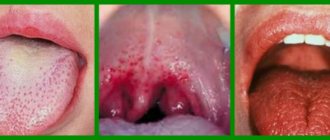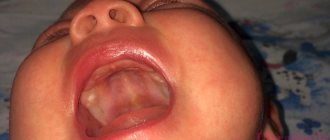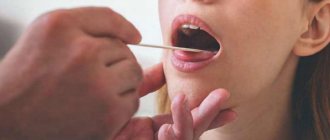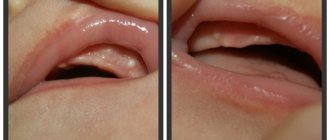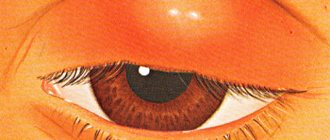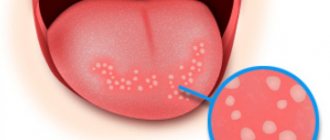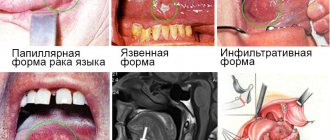The palate is one of the important elements of the oral cavity, thanks to which a person performs speech and chewing functions. However, in the process of life, pathogenic microbes constantly accumulate in the mouth, the negative impact of which can cause the development of inflammatory processes, the formation of edema and numbness. At the same time, patients experiencing irritating discomfort do not always understand the cause of its origin, and do not know how to get rid of palatal itching.
Heaven - what is it?
Before you understand why the palate itches, you need to find out what kind of organ it is. So, the palate is a partition in the upper part of the oral cavity, which, in fact, separates the mouth from the nose from the inside. The purpose of this organ is that, firstly, it prevents germs, food and liquid from entering the nose, trachea, and lungs, and secondly, it helps us pronounce sounds. It consists of two parts. Immediately behind the upper teeth, a hard septum begins, covered with a mucous membrane - you can press on it with your tongue and feel that it really does not allow the tongue to “fall” into the nasal sinuses. The hard septum occupies approximately 2/3 of the area, and immediately behind it begins the soft palate, which is 2 times shorter than the hard palate. It is this that covers the pharynx like a “curtain”, protecting it from food and water getting there. There is a tongue in the center of the soft part.
The palate is the partition at the top of the mouth
What is the palate?
The palate is the upper part of the oral cavity. This is the septum that separates the nasopharynx and mouth. Next, the vault of the oral cavity passes into the larynx. The palate is divided into two sections: hard and soft.
The main function of the palate is to protect the nasopharynx from foreign objects, such as food particles. It also allows you to set the correct direction for the air flow during breathing.
The palate plays an important role in ventilation of the middle ear. It allows you to adjust the internal and external pressure on the membranes, acting as a kind of tuning fork. Also, the palate, in combination with the larynx, is responsible for the timbre of the voice and its pitch. In various languages of the world, this organ helps to form unique sounds.
Interesting! When making the sound “R,” speech therapists teach children to place their tongue on the roof of their mouth.
Causes of itching on the palate
Why does the roof of your mouth itch during the day or at night? In general, inflammation of the palate accompanied by pain and/or discomfort is called “palatinitis.” The causes of itching and pain can lie in a huge number of factors - from untreated diseases to your favorite soft pillow with natural fillings. Let's look at all the possible reasons below.
Itching due to oral infection
As you know, hundreds of millions of harmful microbes live in the mouth - staphylococci, streptococci, various bacilli, fungi, etc. In a healthy adult or child, local immunity copes with them quite well. But when the body weakens, pathogens “win” and diseases begin. For example, a common reason why the palate itches is stomatitis. Why does the sky itch in this case? With stomatitis, small ulcers are formed on the mucous membranes, inhabited by microbes that secrete toxins. In the absence of treatment, not only the tissue structure suffers, which continues to deteriorate, but also itching occurs - a reaction to local irritation.
The cause of itching may be stomatitis
Injuries of various origins
Another common reason that the palate of the mouth itches is injuries to the mucous membranes. Factors that cause itching are:
- injuries of a mechanical nature: damage to the mucous membranes with a toothbrush, a hard object - the tip of a pencil, a toothpick, a nut shell, a sharp candy, a scratch with a fingernail, abrasions from a denture or wearing a broken denture, an orthodontic plate with a sharp edge. Also, an injury may occur during treatment by a dentist - if the doctor worked carelessly with a bur or hand tool,
- chemical damage: burns from acidic foods (citrus fruits), canned food with vinegar, concentrated juices, whitening pastes and gels, medicines, antiseptic solutions, alcohol,
- thermal origin: extremely cold or hot foods (fruit ice, soup, roast) and drinks (juice, water, tea, coffee), smoking.
Orthodontic structures can injure the palate
Diseases of teeth and gums
Untreated or “hidden” caries, pulpitis, periodontitis, as well as gingivitis, periodontitis, and periodontal disease can also cause the upper palate in the mouth to itch. After all, there are many blood vessels in the oral cavity - infection can spread through them, and nerves connecting all organs. Therefore, the cause of itching of the palate may lie, for example, in a diseased tooth in the upper jaw (less often, in the lower jaw). Here, either microbes penetrate the mucous membranes with the bloodstream and provoke palatinitis, or the pain radiates - spreads along the nerve endings far beyond the diseased tooth.
Read on the topic: what is periodontitis - its symptoms, the danger of the disease, treatment methods.
Gingivitis may be a cause of concern
Diseases of the ENT organs
Why does the palate and ears itch, but the dentist does not find any pathologies in the mouth? It is likely that the cause of discomfort is diseases of the nose, throat or ears - after all, they are also connected with each other and with the oral cavity. What to do in such a situation? You need to visit an otorhinolaryngologist - or, in simple terms, an ENT specialist. It is possible that the cause was chronic otitis (if the inside of the ears hurt or itch), sinusitis, tonsillitis, or an aggravated runny nose. When you have a cold, the palate can itch especially severely, and the itching and soreness in the throat, nose or palate does not stop for several days in a row.
Symptoms may be caused by an ENT disease
Allergic reactions
Another option when the dentist cannot find the reason why the palate itches is an allergy. It can occur due to the following irritants:
- new toothpaste, mouthwash,
- washing powder, fabric conditioner,
- dust mites, flowering plants,
- food allergens, dyes,
- wool, feathers and down of animals,
- decorative cosmetics, face cream,
- medications,
- new dentures, plates for bite correction, aligners (elastic “braces”).
Interesting to know! Discomfort may not be associated with an allergy to prosthetic materials, but with the properties of the materials themselves. So, for example, if dentures are installed in the mouth, incl. crowns, bridges, made of dissimilar metals, then an electrical impulse can occur between them - galvanism.
Diseases in children
Why does the upper palate in a child’s mouth itch? Common causes of such discomfort in children are as follows:
- injury from a sharp object: toys, forks, sharp edges of candy,
- infection: most often develops due to dirty fingers or objects that the baby puts into the mouth. Contact with an infected person - an adult or a child - may also be to blame.
- thrush or candidiasis: candidal stomatitis also refers to infectious diseases, but is included in a separate section - because in 60% of cases it is diagnosed in young children. The mucous membranes, tongue and palate can be covered with a cheesy coating, under which inflamed tissues are hidden - they itch and hurt.
In children, the cause of the tooth may be thrush.
In early school and adolescence, discomfort may be associated with teething and hormonal changes in the body.
Rare causes of itching
Sometimes neither the dentist nor the ENT specialist can determine why the roof of the mouth itches. What does it mean? It is possible that the source of the problem is hidden in other organs and systems of the body. Rare causes of itching may be a symptom of the following pathologies and conditions:
- gastroesophageal reflux: reflux of stomach contents (including acid) back into the esophagus and higher,
- increased stomach acidity,
- neurological diseases,
- scarlet fever,
- chickenpox,
- pregnancy,
- menopause,
- diabetes,
- kidney diseases,
- pathology of the thyroid gland,
- oncology.
What to do if your palate itches
The choice of therapeutic course is determined by the specifics of the provoking disease:
- For minor injuries, drug treatment is not a prerequisite - regular rinsing of the mouth with warm solutions and infusions of medicinal herbs is enough to help relieve swelling and relieve minor suppuration;
- If stomatitis is diagnosed, antiseptic treatment, application of compresses, and the use of ointments and creams for mucous tissues are prescribed;
- Detection of herpes diseases requires treatment with drugs aimed at eliminating viral infections. The most popular include Acyclovir and Zovirax;
- The presence of systemic diseases requires the regular application of anti-inflammatory compresses based on bactericidal drugs, as well as physiotherapeutic procedures.
- Detection of caries requires the appointment of sanitation of the oral cavity, which allows to normalize the condition of the teeth and gums, eliminate deposits of plaque and tartar, and also prevent further spread of the disease.
- Vitamin deficiency is the basis for adjusting the daily diet and strengthening the immune system, providing comprehensive recommendations designed for a long period.
- Formation of a neoplasm on the surface of the palate. In this case, we are talking about serious clinical indications that require mandatory surgical intervention.
Practice shows that choosing the right method for treating palatal itching based on diagnostic results is not particularly difficult - the main thing is to correctly identify the provoking factor. First of all, doctors recommend eliminating the inflammatory process, excluding its further development.
Preventing itching
To avoid the formation of inflammation and infection of the oral cavity, you can follow a number of rules, which include:
- Systematic monitoring of the condition of the oral cavity, teeth and tissues;
- Periodic health rinses;
- Control over the consumption of foods and drinks that are at risk;
- Regular – at least once every six months – visits to the dentist for check-ups;
- Strengthening the immune system, careful handling of hygiene items, and compliance with dental hygiene standards.
Such precautions will help you protect yourself from the occurrence of infection and its subsequent development without much effort.
Symptoms that may accompany itching
Why the palate in the mouth itches has already been described above. Now let's look at the symptoms that accompany itching. This may be pain, runny nose, cough, sneezing, increased or decreased salivation, sore or itchy throat, discomfort to the nose, ears, or increased body temperature. Let's add here pain in the teeth, bleeding gums, swelling of the mucous membranes in the mouth, rashes or sores covered with plaque. There may also be a sour or metallic taste in the mouth, and the eyes may become watery.
An accompanying symptom may be sneezing, nasal congestion
Determining the diagnosis
A medical examination helps to clarify the source of the discomfort, as well as determine the degree of development of negative processes, if they are present. If the symptoms are not clearly expressed, the problem often turns out to be minor inflammation caused by external factors, but even in this case it is not recommended to avoid visiting the clinic. Even minor symptoms can turn into primary manifestations of serious pathologies.
The characteristic symptoms characteristic of pathologies, the plug manifestation of which is palatal itching, include:
- Systematic and persistent feeling of discomfort, pain and tingling;
- For fungal infections - the formation of white ulcers on the surface of mucous tissues;
- With the development of a sore throat, there is pain and extensive redness of the throat and palate;
- Increased body temperature.
How is diagnostics carried out?
What to do if the roof of your mouth itches? Here you need to carefully remember whether there were any injuries a few days ago - maybe they were scratched with a brush or toothpick? For 2-3 days, it is better to switch to soft foods (neither hot nor cold) - if the discomfort goes away or has disappeared altogether, then it is not necessary to go to the dentist. Have you recently changed your toothpaste? Try using your usual hygiene product for 3-4 days. If nothing helps, then you need to contact a dentist, who will conduct a diagnosis, find the cause of concern and eliminate it, or, if necessary, give a referral to another specialist - a therapist, pediatrician, ENT specialist, neurologist, etc.
During diagnosis, the doctor examines the oral cavity and asks the patient about complaints. If necessary, tests are taken - blood, oral swab to identify the causative agent of infection.
Prevention
As you know, it is better to prevent any disease than to treat it later. To avoid oral diseases, the following recommendations should be followed.
- Daily monitoring of health and oral mucosa.
- Regular use of mouth rinse.
- Avoid eating too hot or cold food.
- Visit your dentist for a preventive examination at least once every six months.
- Regular personal hygiene.
- Selecting the softness of the toothbrush bristles to suit your type of teeth and gums.
- Maintaining immunity.
All of the above measures will prevent the development of infectious or fungal diseases.
Itching of the palate is a common phenomenon that absolutely everyone encounters throughout their lives. You should not ignore the symptoms or self-medicate. It is necessary to contact the hospital for the help of a specialist who will conduct a competent diagnosis and prescribe treatment. Read the article for removable dentures for one tooth.
How does the treatment work?
Treatment depends on the cause of the itchy roof of the mouth. If it is stomatitis, caries or periodontitis, then the treatment is carried out by a general dentist or periodontist. If the problem is with the prosthesis, you need to go to an orthopedic dentist. If the orthodontic appliance is uncomfortable, you should contact an orthodontist. The doctor prescribes various drugs - gels for inflammation and for tissue regeneration (Cholisal, for example), antibiotics for bacterial or fungal stomatitis (Flemoxin, Fluconazole, for example), vitamin complexes.
For allergies, in addition to replacing the prosthesis (if necessary), 2nd generation antihistamines are prescribed - Ripafin, Erius, Claritin, etc. If the cause of itching is ARVI, runny nose or otitis media, then the ENT specialist will prescribe nasal drops or ears - antibiotics and antihistamines can also be prescribed here.
Specialists may prescribe a gel to reduce itching
“When I have acute respiratory infections, my palate is constantly itching. And when your throat hurts, it generally itches a lot. Lozenges seem to help, but not for long. But at least they have some effect. I know from myself that it helps when I drink a lot of liquid. Something warm and not too sweet is best.”
Tatyana, review from the woman.ru forum
Treatment
The specialist prescribes treatment based on the research results. Treatment is carried out in several stages.
- Identifying the problem.
- Identification of the pathogen.
- Its elimination.
In all cases, drug treatment is prescribed. All drugs are prescribed in accordance with the disease and characteristics of the patient’s body. As a rule, specialists prefer to use one of the following groups of drugs.
| Group of drugs | Description |
| Antiviral | "Acyclovir", "Zovirax", "Gerpevir". |
| Antifungal | "Clotrimazole", "Mikozan", "Nystatin ointment". |
| Antiseptics | “Metrogil-denta”, “Miramistin”, “Chlorhexidine”, “Kamistad”, “Kalgel”, “Furacilin”, “Rotokan”, “Lidochlor”, “Cholisal”. |
| Local painkillers | "Benzocaine", "Trimecaine". |
| Immunomodulators | "Bronchomunal", "Isoprinosine". |
| Antiviral | “Interferon ointment”, “Tebrofen ointment”, “Oxolinic ointment”. |
Important! Self-medication is absolutely contraindicated, since in the absence of proper diagnosis and identification of the causative agent of the disease, the effect of taking medications can be exactly the opposite of what was expected.
Depending on the disease, the specialist chooses the optimal treatment complex.
- Damage to the mucous membrane of a mechanical and thermal nature. As a rule, these pathologies do not require the use of medications. Irrigation of the oral cavity with various herbal infusions, decoctions of chamomile and calendula is prescribed. The solution should be at room temperature to avoid injury to the mucous membrane. In case of swelling, a decoction of oak bark is used.
- Herpes. Antiviral drugs are used to eliminate herpetic infections. For example, Acyclovir, Zovirax.
- Stomatitis. Antibacterial agents, rinses with herbal infusions, and compresses are prescribed.
- Candidiasis. An antifungal complex of creams, sprays, and oral medications is used.
- Caries. All procedures are carried out inpatiently in the clinic: sanitation, removal of tartar. Pain relief therapy is carried out for some time. Regular personal hygiene is also necessary.
- Tumor of the oral cavity. Since this is a serious disease, surgery is immediately prescribed to avoid irreversible consequences.
- Systemic diseases. The inflammatory process is relieved by the use of therapeutic compresses. A set of medications is also prescribed along with physiotherapy.
- Avitaminosis. A complex of vitamins is prescribed, proper nutrition is established and immunity is restored.
Regardless of the cause of the disease, it is recommended to stop smoking cigarettes for the period of treatment, since their composition slows down the healing process and restoration of soft tissues.
First of all, the doctor seeks to remove the inflammation, and only after that the other symptoms are eliminated. Usually, herbal decoctions and medications are used for this.
Important! In case of long-term burning and itching of the palate, you should undergo a medical examination, since these symptoms may be a manifestation of pathological processes, and self-medication will only aggravate the course of the disease.
ethnoscience
Of course, traditional medicine methods are inferior to modern methods of treatment, but they can significantly speed up the healing process when used in addition to the main treatment.
- Vitamin preparations and herbal infusions. Eliminate vitamin deficiency in the body, tone up, and give strength.
- Onion and garlic. Effectively help in the fight against infectious diseases. Thanks to the content of phytoncides, the body's protective functions are enhanced, and recovery occurs faster.
- A solution of soda and salt. Used for rinsing the mouth, eliminating redness of the mucous membrane, sore throat, and inflammation.
- Sage tea. Pour two filter bags into a glass of hot water, let it brew for half an hour and cool. This decoction is used to rinse the mouth to reduce inflammation.
- Celandine decoction. A tablespoon of herb is poured with cold water and boiled for 15 minutes. Then cool and use for rinsing. This decoction effectively eliminates inflammatory processes.
- To reduce itching, it is common to use infusions of green tea, chamomile, calendula, and echinacea. A tablespoon of herb is poured with hot water, infused for ten minutes and drunk.
It is necessary to carefully monitor your condition when using traditional medicines. If the condition worsens or discomfort increases, you should stop taking herbs and decoctions and give preference to standard methods of treatment.
Before using traditional medicine methods, consultation with your doctor is required. Taking some components may provoke an allergic reaction in the body.
Important! Most herbs do not eliminate the cause of the disease, but only help alleviate the condition.
What you need to know about prevention
To protect yourself from palatinitis, as well as speed up its treatment, you need to follow a few simple rules. The first is a diet rich in vitamins and minerals, they strengthen the immune system and allow you to lead an active lifestyle. The second is timely treatment of emerging diseases, because delaying a visit to the clinic increases the risk of complications. And lastly, follow all doctor’s instructions regarding medication and lifestyle.
1Iordanishvili A.K. Diseases of the endodont, periodontium and oral mucosa, 2008.
Ways to get rid of the disease
If itching and redness of the mucous membrane of the palate are caused by minor injuries, traditional drug therapy is not required. To save the patient from this type of pathology, it is enough to operate with medicinal herbs:
- Minor injuries of a mechanical or thermal nature are effectively treated by using mouth rinse with decoctions of herbs, calendula and chamomile;
- Swelling and abscesses are treated with oak bark infusions prepared in water baths.
Rinses used for medicinal purposes should be slightly warm so as not to cause additional irritation to the damaged mucous membrane of the upper arch of the mouth.
